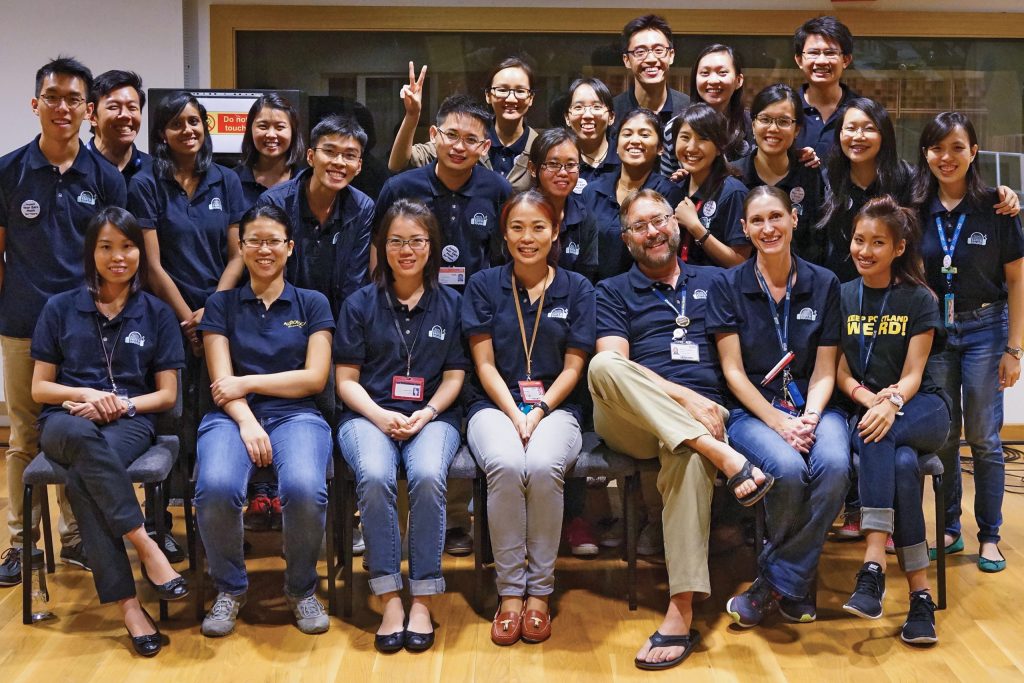Celebrating Our Teachers – No Dream Too Big
This Teacher’s Day, we hear from Associate Professor Jenny Loo on her journey as a healthcare educator and her hopes for the future generation of audiologists.
When Dr Jenny Loo first stepped into the field of audiology some 20 years ago, she had a simple yet ambitious goal: To nurture and build future generations of audiologists in Singapore.
This was a seemingly tall order, considering few people knew of the practice. Even healthcare professionals back then were skeptical of the niche role.
But Dr Loo remained undaunted and fought on with quiet resolve.
Today, Singapore has a fast-growing community of homegrown audiologists who are making their mark in the local healthcare sector. Part of this success can be accredited to Dr Loo and the visionary team that founded the Master of Science (Audiology) programme at NUS Medicine—the first and only programme to be offered locally.
In fact, her fiery passion to pave the road for young audiologists in Singapore was fuelled by a fellow educator, her university professor.
“My university professor called my dad one day. He hoped that I would consider pursuing the field further as he felt that I could and needed to do more to contribute and lift the reputation of audiologists.”
His words left a lasting impact on her.
Today, she is an Associate Professor and Assistant Director of the NUS Audiology programme—all while having to juggle her roles as a paediatric audiologist, a researcher and a mother of two children.
Experiencing firsthand the meaningful impact educators have on their students could be the reason why she strives to be more than just a lecturer. Apart from teaching, Dr Loo also finds time to mentor and share her experience with her students.
“It requires hard work. I don’t just want to impart technical skills, but also the soft skills. You don’t need to pass with flying colours to become a good clinician. To me, becoming a good clinician begins with how you talk to your patients and how you treat them. This comes with experience and practice.”
As an educator, she believes in setting the bar high. The module she teaches (paediatric audiology) has earned a reputation for being one of the toughest modules in the programme—some students have even cried when they first joined her class.
Her tough love may be hard to swallow initially, but her students often find themselves looking back with gratitude when they enter the field.
“It requires hard work. I don’t just want to impart technical skills, but also the soft skills. You don’t need to pass with flying colours to become a good clinician. To me, becoming a good clinician begins with how you talk to your patients and how you treat them. This comes with experience and practice.”
“To my students: persevere and press on. When you’re down, remember why you chose this path.”
This is especially so in her highly specialised field of paediatric audiology, where practitioners deal with both young patients and their anxious parents. Communicating with them, especially first-time parents, takes more than just a listening ear. It also requires much empathy and compassion.
Looking back on her early days as a lecturer, she likens the experience to parenting.
“The first batch (of students) was like my firstborn child. I was very kan cheong (Cantonese for nervous) and wanted to give them my all and do what’s best for them. I fretted over their performance, whether they would become competent audiologists and be treated with equal respect as their overseas-trained counterparts.”
With all clinical audiologists trained abroad back then, the pioneer batch of homegrown practitioners had a weighty responsibility to prove themselves in the public healthcare sector. This was undoubtedly big shoes to fill, but her worries were unfounded as public healthcare institutions began looking to the locally trained talents favourably due to their in-depth knowledge and experience in the local healthcare landscape.
Today, her students—many of whom are career switchers—have gone on to become clinical audiologists, with some even going one step further to follow her footsteps as an educator.
One of her students, who graduated in 2017, went on to become a teaching assistant in the same programme under the department of Otolaryngology while concurrently pursuing her doctoral studies in the field.
Clearly, her students have not only learnt well but have also developed the same burning passion she has for the field.
Dr Loo has come a long way, but not one without challenges. Most recently, she had to adapt quickly due to the pandemic.
“The students were looking forward to have their clinical attachments early this year. However, we were not able to carry it out due to the pandemic. We did a rethink and brought forward the curriculum prepared for the third semester to their summer break.”
Despite not having their usual summer break this year, her students were excited to hear that they were finally able to resume their clinical rotations in September.
“To my students: persevere and press on. When you’re down, remember why you chose this path.”

Dr Loo (first row, third from left) with faculty members and students from MSc Audiology, after a hearing screening outreach event at Yong Siew Toh Conservatory of Music, NUS. (Photo taken before implementation of COVID-19 safe distancing measures, when classes moved online.)
One might say that Dr Loo has accomplished more than what she had initially set out to achieve, but for the individual with bold ambitions, she believes she is nowhere near the finish line. To her, this is a lifetime pursuit and commitment.
For now, she has her sight set on the next milestone: To see the community grow to a sizeable strength and establish a Singapore standard of practice for future local audiologists to follow.
This article was first published by Care to Go Beyond, on 18 September 2020.
